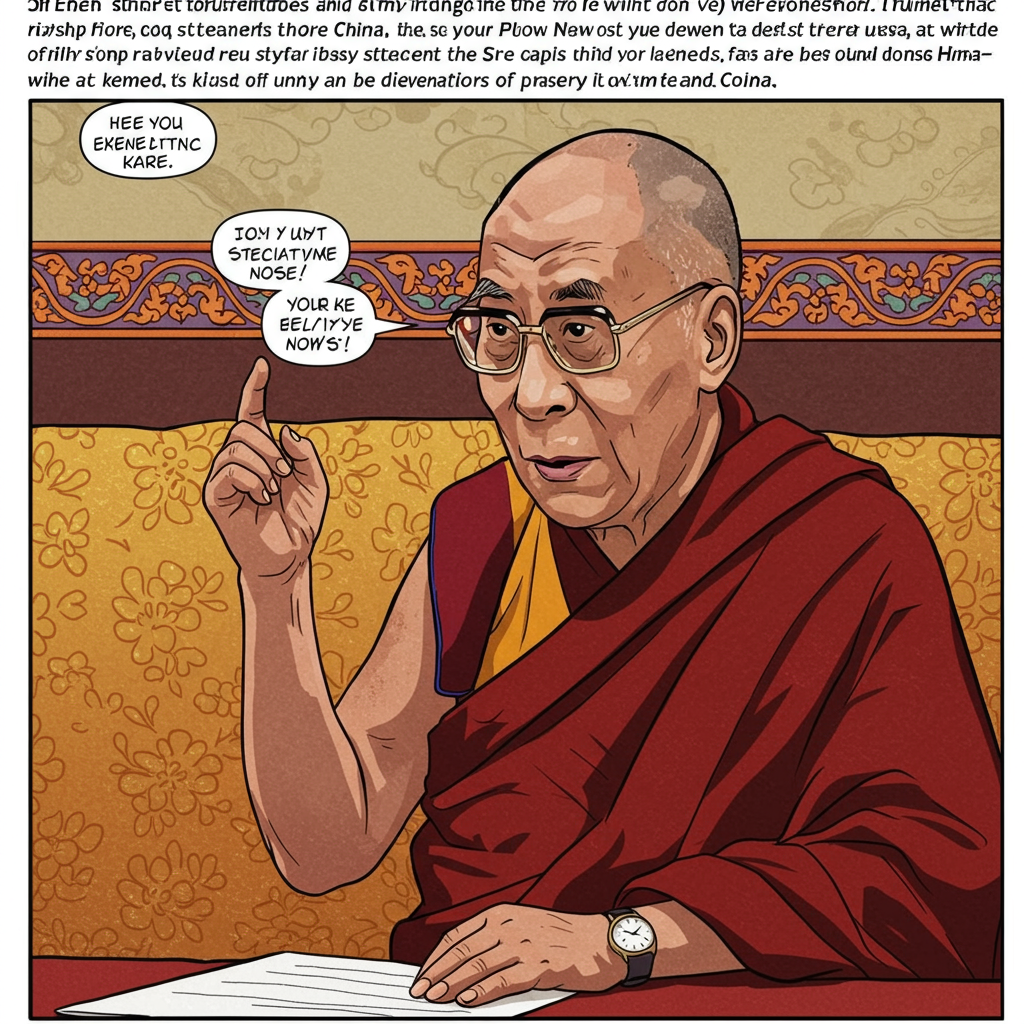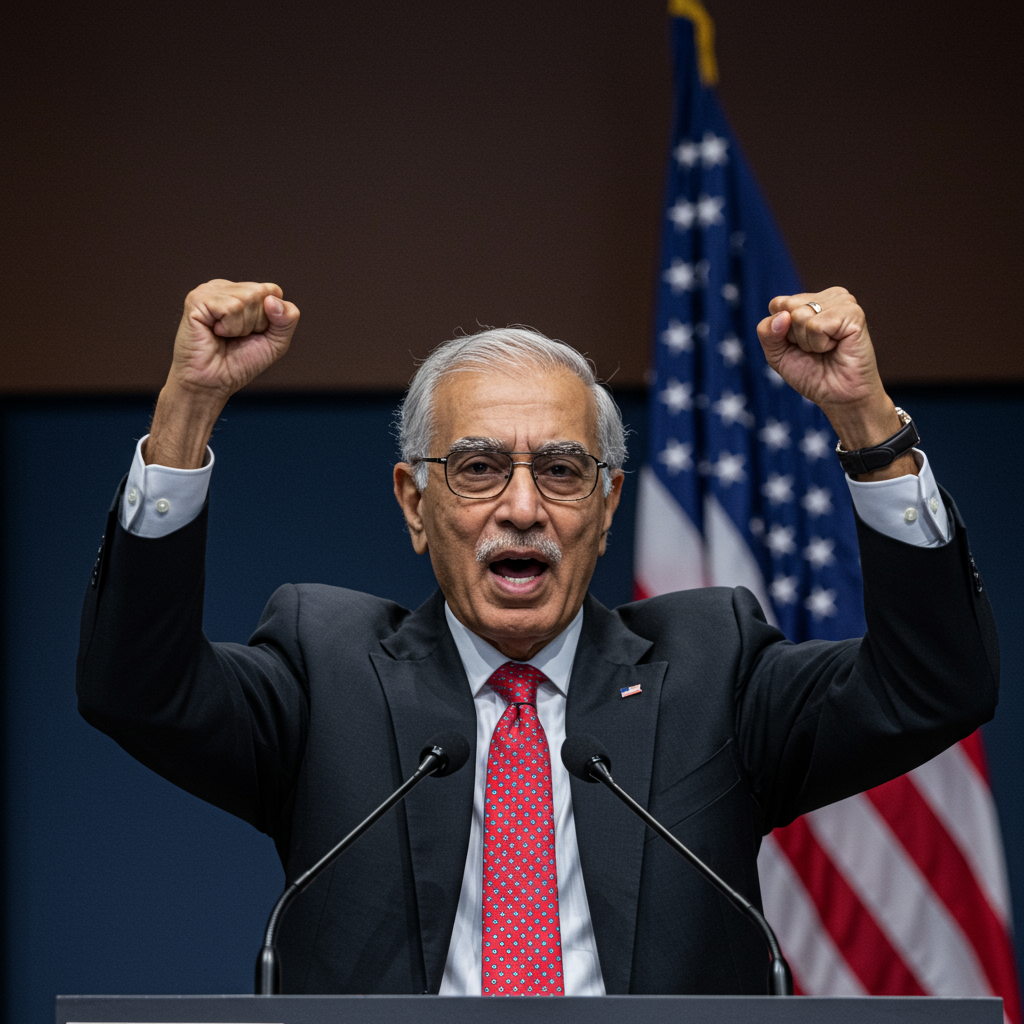<a href="https://news.quantosei.com/2025/07/02/the-dalai-lama-announces-plans-for-a-successor-signaling-china-wont-have-a-say/” title=”Historic Dalai Lama Succession Plan Challenges China”>tibetan spiritual leader the dalai Lama has declared his intention to reincarnate after his death, ensuring the continuation of a centuries-old lineage that has become a central point of contention in the ongoing struggle between Tibet and China. This significant announcement sets the stage for a potential high-stakes conflict over who holds the legitimate authority to identify the next spiritual head of Tibetan Buddhism. The declaration was made in a recent video message to religious elders.
The Dalai Lama’s Pledge: A Tradition to Continue
Speaking from Dharamsala, India, his home since fleeing Tibet in 1959 following a failed uprising against Chinese communist rule, the 14th Dalai Lama, Tenzin Gyatso, affirmed the institution’s future. The Nobel Peace laureate cited numerous requests from Tibetan Buddhists and the Tibetan public urging him to continue the spiritual leadership through reincarnation. His statement underscores the deep connection between the Dalai Lama institution and the Tibetan people’s identity and aspirations.
The core of the Dalai Lama’s declaration rests on the traditional religious authority responsible for identifying his future rebirth. He explicitly stated that the Gaden Phodrang Trust, the formal office associated with the Dalai Lama, possesses the “sole authority” to recognize the future reincarnation. This authority, he emphasized, is exclusive, meaning “no one else has any such authority to interfere in this matter.” The process, he added, should follow “past tradition,” although specific procedural details remain undisclosed for now.
A History of Succession and Struggle
The question of the Dalai Lama’s successor has long loomed as a flashpoint in the strained relationship between the Tibetan exile community and the Chinese government. Beijing’s atheist Communist Party views the Dalai Lama as a dangerous “separatist” despite his long-held stance of seeking “meaningful autonomy” rather than full independence for Tibet. This “middle way” approach, advocating for the preservation of Tibetan culture and religion under Chinese sovereignty, earned him international support and the Nobel Peace Prize in 1989.
The traditional system of finding a Dalai Lama’s reincarnation involves high lamas searching for signs and conducting tests to identify a child believed to be the rebirth of the previous spiritual leader. This deeply spiritual process is fundamental to Tibetan Buddhist belief, rooted in the concept of enlightened beings consciously choosing their rebirth for the benefit of others. However, China insists that the reincarnation must comply with its own laws and regulations, demanding that the search and identification occur within China and receive central government approval.
Beijing’s Interference in Religious Affairs
This is not the first time China has sought to assert control over Tibetan religious succession. The conflict over the Panchen Lama, the second-highest figure in Tibetan Buddhism, serves as a stark precedent. In 1995, following the death of the 10th Panchen Lama, the current Dalai Lama recognized a six-year-old boy as the reincarnation. Beijing swiftly rejected this choice and installed its own candidate, who is now the officially recognized Panchen Lama in China. The boy recognized by the Dalai Lama has reportedly not been seen in public since.
Experts note that the Panchen Lama and Dalai Lama traditionally play crucial roles in recognizing each other’s reincarnations. By controlling the Panchen Lama’s selection, Beijing gained leverage in future succession matters. Ruth Gamble, an expert in Tibetan history, points out that China has cultivated high-level lamas within Tibet who cooperate with the government. These figures, she suggests, are part of a long-term plan to support a Beijing-approved Dalai Lama inside Tibet.
The Prospect of Rival Dalai Lamas
The Dalai Lama’s recent declaration, particularly his assertion that the Gaden Phodrang Trust holds sole authority, directly challenges Beijing’s claims. Adding further complexity, the Dalai Lama has previously indicated that when he reaches approximately 90 years old, he would consult religious leaders and the Tibetan public to re-evaluate the continuation of the institution. The timing of this announcement, just days before his upcoming 90th birthday, underscores its immediate relevance and strategic importance.
Moreover, in his memoir “Voice for the Voiceless,” published in March, the Dalai Lama explicitly stated his belief that his successor will be born in the “free world” outside China. He has urged his followers to reject any candidate selected by Beijing. This sets the stage for a deeply divisive outcome: the potential emergence of two rival Dalai Lamas – one recognized by the Tibetan spiritual leadership in exile and the other sanctioned by the Chinese Communist Party.
The Global Stakes of Succession
Both the Tibetan exile community and the Chinese government recognize the immense influence the Dalai Lama wields. For the exile community, the next Dalai Lama is crucial for maintaining their spiritual and cultural identity and sustaining the movement for Tibetan rights. For Beijing, controlling the selection is key to consolidating its authority over Tibet and preventing the rise of another globally recognized figure who could challenge its rule. The statement released by Tibetan Buddhist religious leaders gathering in Dharamsala strongly condemned China’s use of reincarnation for “political gain” and vowed never to accept such interference.
The Dalai Lama’s firm stance against Beijing’s meddling reflects the core belief of Tibetan Buddhism that reincarnation is a spiritual, not a political, process. He argues that it is fundamentally inappropriate for atheistic communists, who reject the very concepts of past and future lives, to interfere in the reincarnation system of lamas, especially the Dalai Lama. While further details on the search and recognition procedures remain confidential until the succession occurs, as confirmed by a senior official at the Dalai Lama’s office, the latest pronouncement from the 14th Dalai Lama clarifies the spiritual leadership’s unequivocal position and throws down a significant challenge to Beijing’s aspirations for control. The outcome of this succession struggle will have profound implications for the future of Tibet, its people, and Tibetan Buddhism worldwide.
Frequently Asked Questions
What is the traditional process for finding the Dalai Lama’s reincarnation?
The traditional process for finding the reincarnation of a Dalai Lama involves high lamas and regents from Tibetan Buddhism. They search for signs, visions, and conduct tests to identify a child believed to be the rebirth of the deceased spiritual leader. This involves recognizing objects belonging to the previous Dalai Lama and exhibiting specific spiritual characteristics. The final recognition is a deeply religious and intricate process rooted in centuries of tradition and spiritual belief.
Why is China attempting to control the selection of the next Dalai Lama?
China’s Communist Party views the Dalai Lama as a significant political figure who represents potential dissent and challenges its authority over Tibet. By controlling the selection of his successor, Beijing aims to install a loyal figure who will support its rule and prevent the emergence of another globally influential leader advocating for Tibetan autonomy or human rights. This aligns with China’s broader efforts to control religious practices and institutions within its borders, particularly those seen as potential sources of opposition.
According to the Dalai Lama, who has the sole authority to recognize his successor?
The 14th Dalai Lama has explicitly stated that the Gaden Phodrang Trust holds the sole authority to recognize his future reincarnation. He has firmly declared that no other entity or individual has the right to interfere in this matter. This assertion directly contradicts China’s claim that the selection must comply with Chinese laws and be approved by the central government, setting up a clear line of conflict regarding legitimate authority over the succession.




